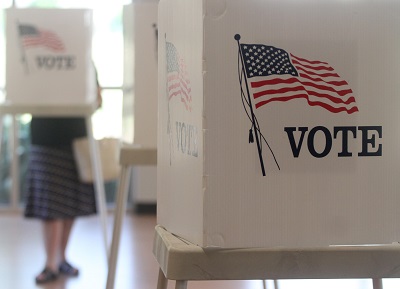Press Release: International Trade Showing Signs of Recovery After 2009 Decline, According to New Bay Area Council Economic Institute Report
The Bay Area Council Economic Institute (BACEI) today released a new report, International Trade and the Bay Area Economy: Regional Interests and Global Outlook, 2010-2011. The fourth in a series produced in alternating years since 2003, the report assesses current trends in international trade, trade negotiations, regional trade activity, and trade-related infrastructure.
It finds that international trade, which declined with the global economy in 2009, is recovering.
“After a deep global recession, trade is growing again,” said Sean Randolph, President & CEO of the Bay Area Council Economic Institute. “This is important not just for large companies, but for thousands of small and medium sized companies as well. As a major trading region, we need to support open markets, help smaller companies succeed as exporters, and invest in the port, airport and transportation infrastructure that will support a growing volume of goods and people entering and leaving the region.”
The report notes that while in recent years the United States has not actively sought new free trade agreements, three bilateral agreements negotiated by the Bush Administration – with Korea, Columbia and Panama – have been stalled in Congress. Of these, it finds that the agreement with Korea is most important to the Bay Area, due to the size of Korea’s economy and its status as a major trading partner. President Obama has expressed support for all three agreements, and has negotiated amendments to the Korea agreement that will set up a Congressional vote this year.
“Passage of the Korea-U.S. Free Trade Agreement is a Bay Area priority, and should be supported by every member of the region’s Congressional delegation,” said Jim Wunderman, President & CEO of the Bay Area Council.
From a Bay Area standpoint, the report notes two other trade forums that merit particular attention in 2011. Negotiations are underway for a Trans-Pacific Partnership with nine U.S. trading partners in the Asia-Pacific region. The United States will also host the 21-nation APEC (Asia-Pacific Economic Cooperation) Leaders Summit in Honolulu in November. The pre-summit, which will engage 1,000-2,000 ministers, ambassadors, senior officials and business leaders from the 21 APEC economies, will be held in San Francisco in September, offering a unique opportunity to address California and Bay Area priorities.
These developments are particularly important for the Bay Area, which ranks as the nation’s fourth largest source of exports. Asia continues to be the Bay Area’s largest export market, with computer and electronic products the leading export. The region’s exports are diverse, however, also including wine, apparel, petroleum products, and a wide array of services.
A survey conducted for the report of leading Bay Area companies and where they earn their revenue (in the U.S. or overseas) finds that 2009 broke a longstanding trend in which companies derived an ever-increasing share of revenue from global markets. This reflected the stalling of the global economy in 2008-09. With trade gathering momentum in 2010 and strong growth in many Asia-Pacific markets, however, the historic trend toward growing dependence on international trade is likely to resume.





